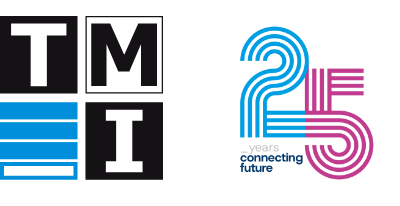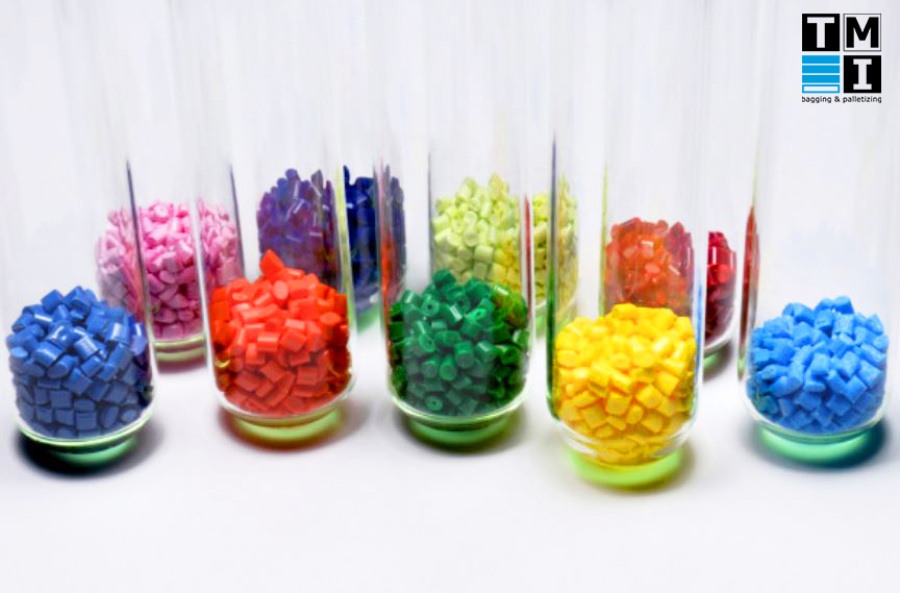A whole world of possibilities opens up when we talk about polyamides, composites and masterbatches. Talking about “polymers” as a general term is like talking about “the stars in the universe” (also as a general term): This is a highly technical type of product, and few are the lucky ones in this world who are up to date with all the existing materials in the field. Only the manufacturers have an in-depth knowledge of the characteristics of each of their products.
So, no: in this article we will not go into detail on whether this or that solution is better or worse for each type of polyamide. What we will do is focusing on the most common concerns when packaging polymers and masterbatches and on those technical packaging solutions that can dissipate them.
SMALL BATCHES, BIG REQUIREMENTS
If there is one thing that differentiates the production of technical compounds from that of polyolefins (PE, PP, HDPE,…), it is the volume: specialisation in the production of increasingly technical materials micronises production, resulting in a large number of small batches.
These are batches of generally +/-200kg, that once packaged turns into 8 standard 25kg bags. This amount allows no room for error: accuracy is of paramount importance, and you need to fit your bagging equipment with a dosing system capable of guaranteeing it from the first to the last bag you produce. This would be, for example, an ILERPES BG gravity gross weight dosing system, which has been designed to optimise the height for maximum accuracy.
Wondering what height and accuracy have in common? You see…
There are several variables that influence weighing accuracy: the product behaviour, because it is not the same for a product that flows in a regular way (such as granules) or one that tends to vault (some powders); the product density, because the higher the density, the greater the challenge of accuracy; and the height of the product column, i.e. the distance between the dosing unit and the inside of the bag, in the case of gross weight, or between the dosing unit and the weighing bucket, in the case of net weight.
The latter is decisive for the weight controller to be able to perform its predictive function and stop the flow rate at the right time, taking into account the falling product in the product passage column. The lower the height, the more precise the flow cut-off and thus the weighing.
CLEANING, CLEANING, … AND CLEANING AGAIN
Still on the topic of manufacturing technical materials in small batches: If your company produces masterbatch or other technical materials with very specific and/or powerful characteristics, you know what it’s all about: cross-contamination is to an extruder like food after midnight for Gremlins, it can have devastating effects!
This is why it is extremely necessary to implement a cleaning protocol after each batch change. Of course, this has a direct impact on the optimisation of the production line, because applying the cleaning protocol costs time and labour (hygiene, change of consumables, …).
How can you optimise this process to reduce downtime and related costs? Well, by choosing the right equipment:
- The bagging machine should be designed without any corners, especially in the product circulation ducts. In this way, there is no possibility of uncontrolled product remains.
- Include a blowing system through the product circulation ducts prior to the cleaning protocol: you will ensure that no product is left and also shorten the time the operator spends on this task.
- The cleaning process will be considerably shortened if the equipment is easily accessible. The tool-less approach is highly recommended in as many parts of the bagging machine as possible. This will make your bagging process much more agile.
HUMIDITY: IT’S NOT ONLY BAD FOR YOUR BONES
Humidity can intrude and invade polymers in many ways: by binding to their constituent molecules, by resting between constituents, or by remaining on their surface. In the case of hygroscopic plastics, moisture absorption into the granules is particularly insidious. When polymers are subjected to processing temperatures, humidity negatively affects the aesthetic and functional quality of the final product in many ways (scratches, bubbles, structural stresses, cracks, …).
To prevent this possibility, polyamides must be properly protected during transport and storage.
But, how?
First of all, make sure that you choose a technical bag that meets the requirements of the product. There are a variety of bag manufacturers offering bags made of complex laminates of PE, PET, metallised PET, sandblasted PET, OPA, APP, aluminium, …. Make sure that the bag you choose can be thermo-sealed correctly and that your supplier fully understands your needs. The type of bag, pre-made or reel type, together with the target output, will determine the bagging technology to be applied: manual, automatic or FFS (Form-Fill-Seal).
Whatever the bagging machine, what really matters in terms of product protection is that the bag sealing system is capable of completely extracting the air, and even inerting the atmosphere, thermosealing the bag perfectly (without the possibility of breakages or leaks). This can be achieved using a vacuum cannula thermosealing system such as the one you can see in this video.
In addition, a thermosealing machine with vacuum cannula such as the ILERSEAL C, can contribute to cost reduction, because it can eliminate bag deaeration systems and valves that add technical costs to the consumable.
SAFETY FIRST
One of the top concerns of the petrochemical industry is, and will increasingly be, safety. This covers operator safety, product safety, asset safety, property safety… the safety of EVERYTHING in and around a production plant.
The key to keeping every task and every gesture under control in these circumstances is the standardisation of procedures.
What if there were procedures that do not require standardisation?
Automation of the packaging process can make a big contribution in this sense: An automatic bagging machine for pre-made bags with integrated heat sealing, such as the ILERSAC H, or an FFS (Form-Fill-Seal) bagging machine, such as the ILERBAG H, is a step forward. In an area of about 15m2, an automatic bagging machine takes the bag, fills it, thermoseals it and lays it down on the exit conveyor.
This way, no human intervention is required in these processes and the operators can be assigned to other tasks where they are less exposed.
SUSTAINABILITY
By now you probably know that recyclability, sustainability and the famous 3Rs no longer sound like a tall tale. Preserving the environment has become the greatest challenge facing humanity in the 21st century. Thus, not only is legislation to regulate the consumption and management of plastics gaining importance (especially in the European Union), but also initiatives are emerging in industry to prevent the dispersion of plastics, such as the OCS-Zero pellets loss.
The main objective of this initiative is to control the risk of product leakage at all stages of the value chain, including the filling and handling of bags. And it is here that the need for the bagging machine to be fully leak-proof, designed to prevent product losses at all times, becomes particularly relevant. And in the event that leakages do occur, they should be detectable and recoverable.
The big problem for generations to come will be the tons and tons of plastic released into the environment, along with the lack of resources to produce more. This is an issue of growing concern to consumers, who are increasingly aware of the problem and are becoming more picky about the product they buy and its entire value chain. This has an upstream impact on the industrial producer, who needs to reduce plastic consumption, starting with optimising packaging.
One way to achieve this can be through FFS technology, which allows you to optimise bag sizes based on product density and weight for each format, so that you can ensure that only the minimum material required to protect the product is used for each bag. By working according to recipes and format adjustments, machines such as the ILERBAG H or ILERBAG HS enable you to reduce the tonnes of plastic used annually to package your product.
This reduction not only translates into sustainability, but also into profitability for the company: the less material used, the lower the cost of consumables per unit.
REGARDING PROFITABILITY…
Do you know if your end-of-line really allows you to achieve the expected ROI?
Low equipment availability may be slowing down the return on investment. It is important to provide your end-of-line with a control system that allows you to collect data, especially OEE (Overall Equipment Effectiveness) indicators, in order to carry out an objective analysis and identify those points that need improvement, both in terms of equipment and procedures. In this way, you will be able to make better decisions for the profitability of the company based on real data.
You can read more about OEE and real-time control in this article.
Do you want to know how TMI can help you optimise the packaging process of your products and achieve your improvement goals? Contact us and we will study your case.


